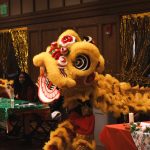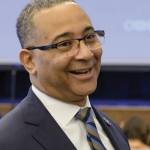Paul Lauter
2024
Way back in June, 1964, I organized a conference on Teaching About Peace Issues, held at NYU’s Bronx campus, now Bronx Community College. I wanted to make peace research and teaching about peace kosher on campuses still anxious from the impacts of Cold War McCarthyism. Sharing information, especially syllabi and bibliographies about how to teach peace studies, constituted one practical objective of the conference.
But more fundamentally, we wanted to examine assumptions about the supposed disinterestedness of academic study and research. We were not about to imitate pro-war activities like the Michigan State program to train and support the tyrannical police of South Vietnam or Columbia’s backing of the Institute for Defense Analysis. But the discussions did help us to understand that research and teaching, however they might claim to be “impartial,” inevitably had a politics. Not of the “vote for me” or even “which side are you on?” kind. But of the kind that asked “what are the political implications of the choices we make about what to study and what to teach, or even what to collect in an archive?”
Central to our conference and the much more effective teach-ins of 1965 was the perception that learning about the history and society of Vietnam was not a marginal academic enterprise, but absolutely central to the point of American higher education in the mid-twentieth century. Likewise, studying race was critical to understanding American literature (my field), history, and politics. Those insights about “academic” choices reverberated throughout the world of teaching and learning.
In my own field, those insights came to be called “the question of the canon.” It molded our ideas about the writers, stories, and poems to which we devoted our criticism, and to which we chose to introduce our students. Did it matter whether, teaching modernism, for example, we restricted ourselves to T. S. Eliot, Ernest Hemingway, and Wallace Stevens and omitted Langston Hughes, Zora Neale Hurston, and Amy Lowell? Well, yes. It mattered, though it sometimes remained hard to explain, especially to some of our traditionalist colleagues, why our choices engaged the critical questions of who and what in our society were important.
Such choices always shaped what and how I taught in 26 years at Trinity, probably more even than the direct actions colleagues like the late Fred Pfeil helped lead on campus. I, too, remained an activist, but I was always also a “professor” devoted to the myriad ways in which literature and culture shaped how we thought about our world, and about how to live peacefully and equally within it.
Paul Lauter retired as Allan K. and Gwendolyn Miles Smith Professor of Literature after 26 years at Trinity College. He has served as President of the American Studies Association (of the United States), and he remains General Editor of the groundbreaking Heath Anthology of American Literature. Lauter’s most recent books include From Walden Pond to Jurassic Park, an edited volume with Ann Fitzgerald titled Literature, Class, and Culture, and a Blackwell Companion to American Literature and Culture. New projects have included an edited collection of essays on American working-class literature with Nick Coles (Cambridge, 2017) and an account of the impact of 60s activism on education, politics, and culture, Our Sixties: An Activist’s History (Rochester, 2020). He remains active with Radical Teacher and in the Vietnam Peace Commemoration Committee. He and Doris Friedensohn provided one of the essays in the collection Gray Love.


+ There are no comments
Add yours